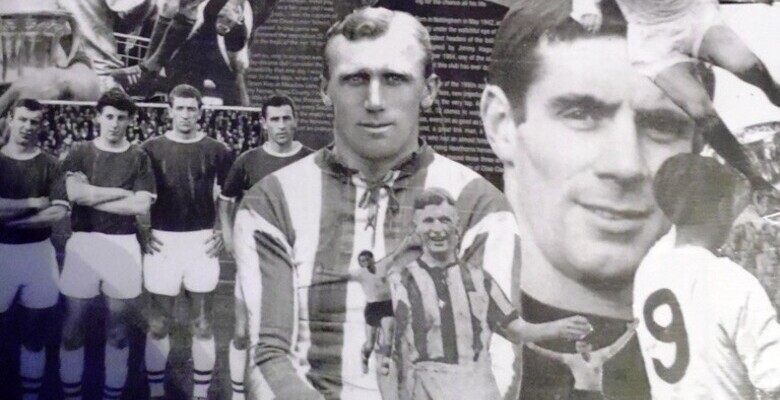Nestled in the heart of the West Midlands lies a football club with a name that resonates through time – West Bromwich Albion, affectionately known as “Albion.” A captivating name that has ignited curiosity among fans and football enthusiasts for generations. Join us on a thrilling journey as we delve into the historical roots and captivating reasons behind why West Bromwich Albion proudly bears the title “Albion.”
The Origins of “Albion”: A Mythical Connection
Picture this – ancient Greek explorer Pytheas, navigating the vast seas, stumbled upon the enchanting British Isles in the 6th century BC. In awe of its beauty, he bestowed upon it the names “Albion” and “Ierne” (Ireland). But what does “Albion” even mean?
Derived from the Greek word for “white,” it may be a nod to the chalk cliffs that line England’s southeastern coast, painting the landscape with an ethereal hue. Thus, the name “Albion” symbolizes not just a place but a connection to the mythic origins of the British Isles, where legends are born and tales come to life.
West Brom’s Endearing Nicknames: The Baggies and The Throstles
Beyond the formal title, West Bromwich Albion has earned two endearing nicknames that have become woven into the fabric of the club’s identity.
1. The Baggies: A name that carries echoes of the past, harking back to the region’s proud history in the bag-making industry. Just as the threads of a bag are woven together, so too are the threads of history and community tightly knit into the very essence of the club.
2. The Throstles: Ah, a touch of nature and harmony! Inspired by the club’s emblem, a songbird called a throstle, this nickname embodies the passionate unity of the club’s loyal fanbase. Just as the throstle’s song rings out harmoniously, so do the voices of the fans, resonating across the stands with unwavering support.
The Storied Ground: The Hawthorns
As the sun rises on the West Midlands, The Hawthorns stadium stands tall, a footballing bastion steeped in history and grandeur. Since 1900, this iconic stadium has been the hallowed home ground of West Bromwich Albion. Picture the roaring stands, the sea of black and white, and the palpable excitement as legends have graced its turf.
The name “The Hawthorns” itself is rooted in the area’s natural beauty, once adorned with hawthorn bushes that bloomed with every spring. An enduring symbol of footballing heritage and pride, this storied ground has been witness to the joys and triumphs that make football an unforgettable spectacle.
Recognized Players in Albion’s Pantheon
In the chronicles of footballing history, West Bromwich Albion’s constellation of stars shines brightly:
1. Tony “Bomber” Brown: The goal-scoring maestro, an Albion legend, and the club’s all-time leading scorer with a staggering 279 goals. Tony Brown had the power to unleash thunderous strikes, earning him the nickname “Bomber” and a place in the hearts of fans forever.
2. Cyrille Regis: A trailblazer and icon, Regis was part of the famed “Three Degrees” trio, breaking barriers for black footballers in England. His dazzling skills and infectious charisma left an indelible mark on the sport and a legacy that endures to this day.
3. Laurie Cunningham: Another member of the “Three Degrees,” Cunningham soared to great heights, becoming the first Englishman to play for Real Madrid. His flair on the pitch mesmerized fans, and his journey stands as a testament to determination and talent.
West Bromwich Albion’s Honors and Achievements
The club’s illustrious history is studded with glittering achievements, a testament to its indomitable spirit:
| Competition | Number of Titles |
|---|---|
| First Division / EPL | 1 |
| FA Cup | 5 |
| Football League Cup | 1 |
| Football League Trophy | 2 |
| Second Division / EFL | 2 |
Albion – A Name with Enduring Spirit
West Bromwich Albion’s enchanting name “Albion” embraces a rich tapestry of history, tradition, and pride. A name that connects the club to the mythic origins of the British Isles while symbolizing purity and resilience.
As the sun sets on the storied ground of The Hawthorns, the echoes of legends past and the cheers of passionate fans continue to reverberate.
From the celebrated players who graced the pitch to the enduring nicknames that reflect the club’s spirit, West Bromwich Albion stands as a testament to the unwavering passion and pride of a club eternally known as “Albion.”
FAQs
West Bromwich Albion adopted the name Albion as a tribute to the mythical British Isles. Derived from ancient Greek and Roman literature, Albion signifies white, possibly alluding to the chalk cliffs along England’s southeastern coast.
The club is endearingly known as The Baggies and The Throstles. The Baggies represents the region’s historical bag-making industry, while The Throstles is inspired by the club’s emblem, a songbird.
The iconic stadium, The Hawthorns, became West Bromwich Albion’s home ground in 1900. Since then, it has witnessed countless historic matches and remains a symbol of footballing heritage.
The club’s trophy cabinet boasts one English top-flight title, one Football League Cup, two Football League Trophies, and two second division titles.
Beyond football, West Bromwich Albion has actively engaged in charitable endeavors and community projects, reflecting its commitment to making a positive impact on the lives of those it represents.





